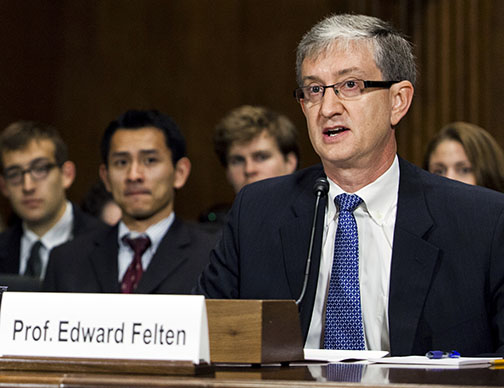From the Editor: Privacy in an Online World
Minutes after I began editing the article by Mark Bernstein ’83 that appears on page 30, advertisements started popping up on my computer screen. There was one for the IBM Cloud, and one for Wired magazine. A deal at a men’s clothing store appeared. There was an ad from a high-tech firm hoping to recruit young people with software-coding talent — grossly misdirected on both counts. It had taken only a few clicks on my Internet browser — fact-checks on issues related to Internet privacy — to attract attention from companies that had ignored me before.
As the alumni and professors covered in this issue make clear, we are being observed, tracked, and analyzed more than we think. Each time you use a credit card, turn on your GPS, or click on a company’s website, a piece of information is gathered. That’s true both on and off campus: To help us understand privacy matters, PAW writer Vivienne Chen ’14 recorded her comings-and-goings for a week, and was surprised to see what a person could have found out about her — including the amount of time, and the specific hours, she spends in her dorm room and in other buildings; when and where she arrives at her campus job; what books, articles, and websites she reads; and where she spends money. Students can imagine “a scenario with a hyper-vigilant government where, while feeling a bit under the weather and needing to prepare for chemistry class, we order up Sudafed and suddenly ... we’re in an episode of Breaking Bad,” she says.
Sometimes, this kind of monitoring can provide benefits: I can fast-track my shopping when companies connect me with the right products, and GPS systems and prox cards add a measure of security. We gain, but we also lose: the ability to disclose only what we want people to know about us, to speak and gather information anonymously if we desire, to keep secret our network of close friends.
The people who helped us with this issue — particularly Edward Felten, one of the nation’s leading researchers on digital security — have broadened the discussion about privacy. We invite you to participate, in print and online — but remember: Your digital trail will remain long after you turn off your computer.













No responses yet